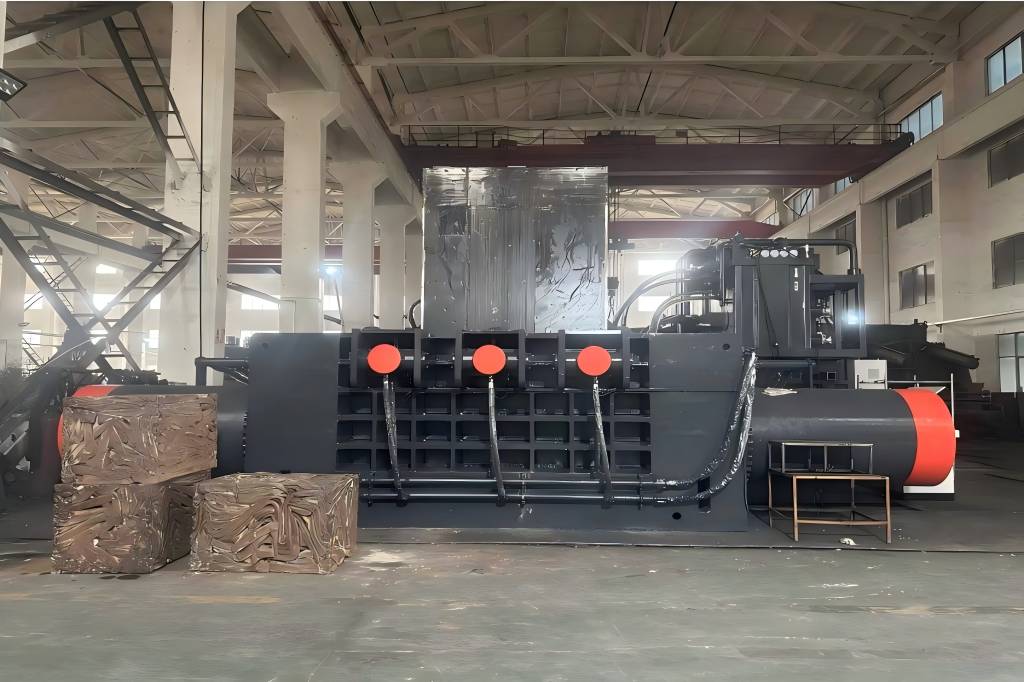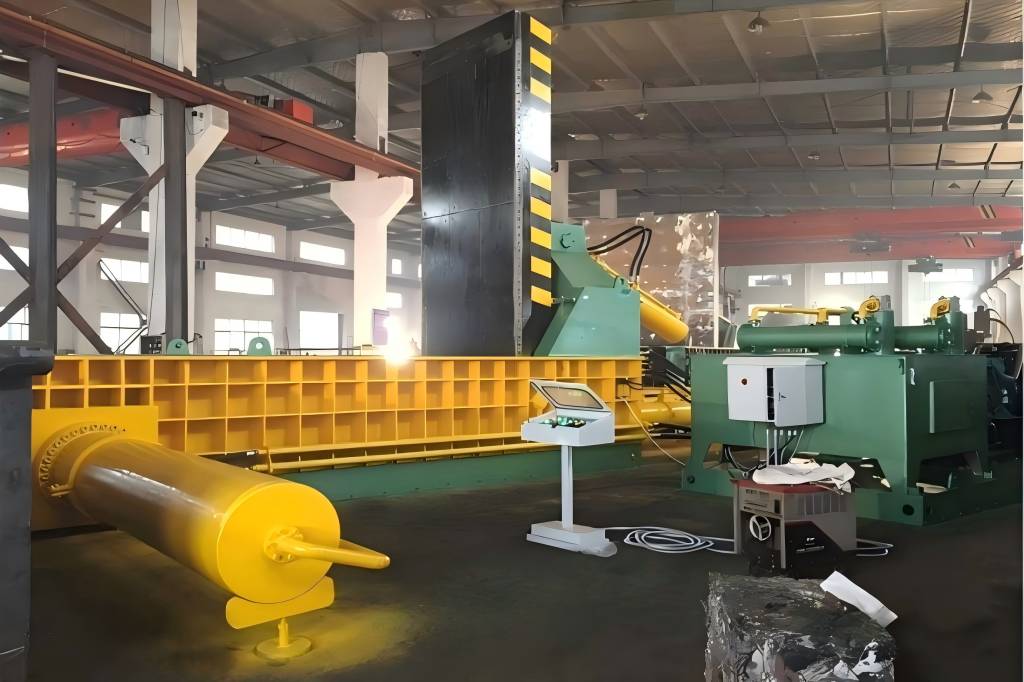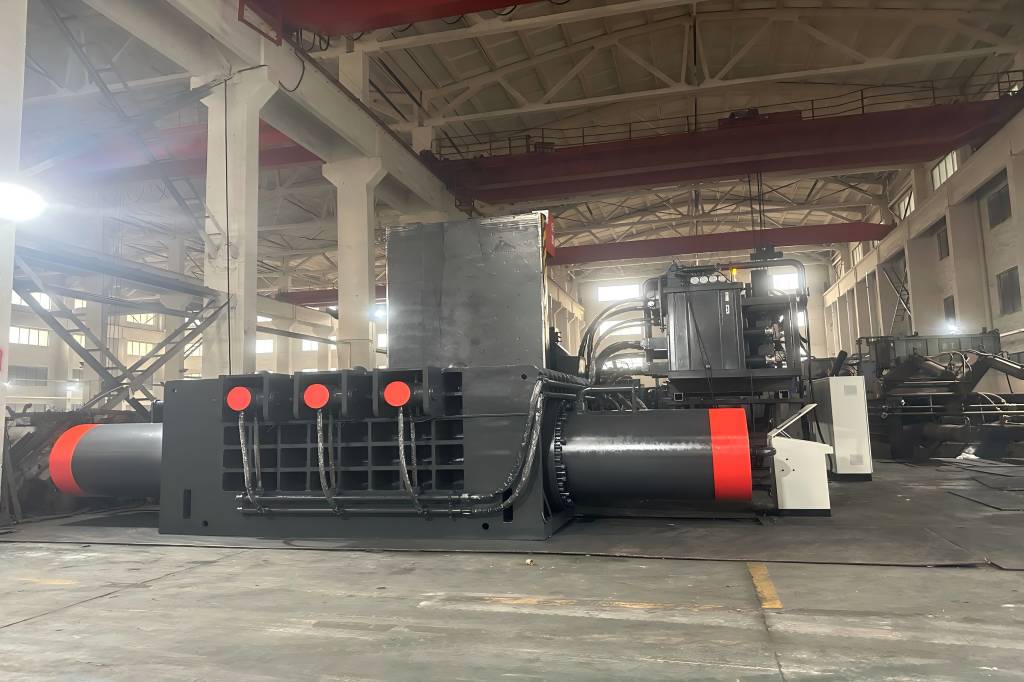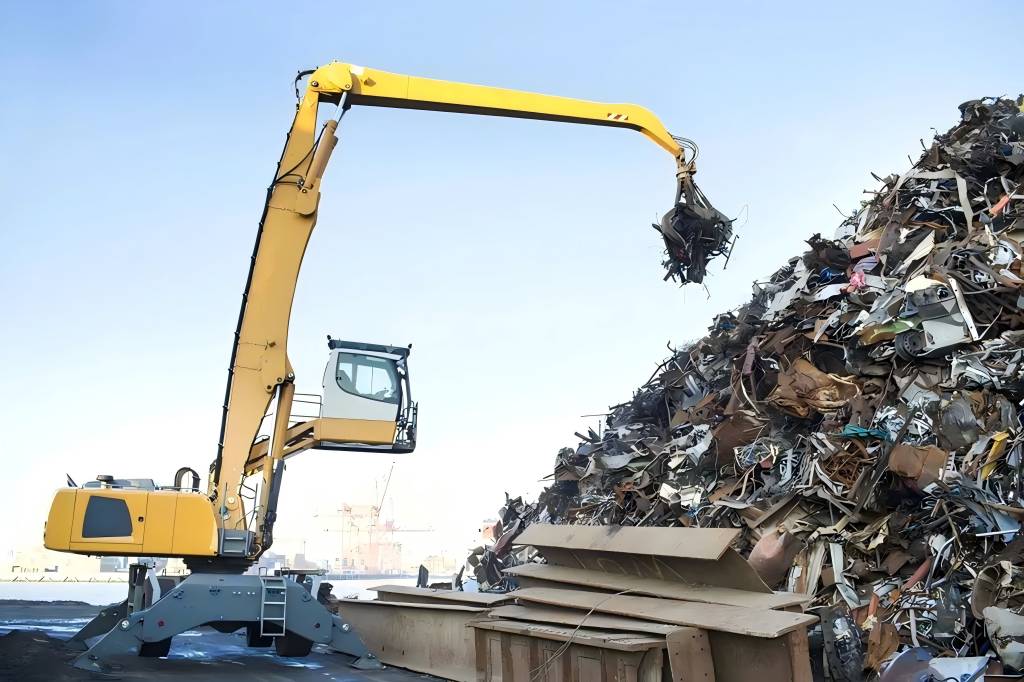Scrap metal balers are vital for processing facilities, recycling centers, and waste management sites, allowing these organizations to compress metal scraps for efficient handling and recycling.
Nevertheless, the hard labor these machines do frequently results in damage of many kinds, which can interfere with operations, need expensive repairs, and endanger worker safety.
This article examines the main causes of scrap metal baler damage and offers solutions that can help facilities maintain efficient, safe, and cost-effective operations.
Major Causes of Scrap Metal Baler Damage
1. Overloading and Misuse
A common issue with balers is overloading — feeding in too much material in an attempt to increase productivity. Overloading creates excessive pressure on the machine, particularly on the hydraulic system, and can lead to jams, broken components, and reduced baler life.
Solution: Establish strict guidelines for maximum load capacity and train operators to follow these standards. Automated sensors can also detect overloads and stop the baler from operating until the excess load is removed. Additionally, ensure that operators are trained on the proper loading techniques for efficiency and machine longevity.
2. Insufficient Maintenance
Regular maintenance is crucial for balers to function effectively, yet many facilities neglect this basic need. Without regular checks, minor issues such as loose bolts, worn parts, or hydraulic leaks can go unnoticed, leading to significant damage over time.
Solution: Create a preventive maintenance schedule, including daily inspections, monthly servicing, and annual assessments by professionals. Important maintenance tasks should include checking hydraulic fluid levels, tightening bolts, lubricating moving parts, and testing electrical components. Preventive maintenance minimizes unexpected repairs and prolongs the life of the baler.
3. Hydraulic System Failures
The hydraulic system is central to a baler’s operation, and any issues within this system can have a serious impact. Hydraulic leaks, contaminated or low fluid levels, and pump failure can result in decreased compression strength, overheating, and total machine failure if left unchecked.
Solution: Replace hydraulic fluids according to manufacturer recommendations and keep a regular check on their levels. Ensure that filters are clean, and schedule regular inspections to catch potential leaks before they worsen. Training operators to recognize early signs of hydraulic issues, such as loss of power or excessive heat, can help prevent major system failures.
4. Electrical System Malfunctions
Scrap metal balers rely on complex electrical systems that can experience power surges, wiring issues, and component wear over time. Electrical issues can cause the machine to stop unexpectedly or even create safety hazards due to short circuits or exposed wiring.
Solution: Inspect the baler’s wiring and electrical connections regularly, testing for wear, corrosion, and proper function. Working with a licensed electrician for periodic checks ensures safety and reliability. Installing surge protectors and backup power sources can also shield the baler from power interruptions and spikes.
5. Operator Errors and Inadequate Training
Untrained or undertrained operators are more likely to mishandle the baler, which can lead to equipment damage. Improper feeding, failure to follow loading limits, and misusing controls can all contribute to breakdowns and increased maintenance costs.
Solution: Provide thorough, consistent training for all operators on proper baler use, loading techniques, emergency stop procedures, and maintenance basics. Regular refresher training helps ensure that all operators stay updated on safe practices and can handle the machine with care. Certified operators are also more likely to prevent and identify issues early.
6. Dust and Debris Accumulation
Scrap metal processing generates dust, metal fragments, and other debris that can accumulate around and within the baler, leading to blockages, overheating, and abrasion on moving parts. This buildup can hinder the machine’s performance and even result in motor strain or fire hazards if not managed properly.
Solution: Establish a regular cleaning schedule for the baler and its surrounding area, focusing on areas prone to buildup, such as the compression chamber and vents. Debris can be kept out of the machine by covering critical sections with protective coverings. Additionally, regular dusting and cleaning encourage improved air circulation and lower the chance of overheating.
Practical Solutions to Prevent Scrap Metal Baler Damage
Implementing a Preventive Maintenance Program
Preventive maintenance is the foundation of keeping a scrap metal baler in peak condition. Regular inspections, timely repairs, and part replacements prevent many forms of damage before they occur.
Key Maintenance Tasks:
- Daily Checks: Look for any indications of loose parts, leaks, or wear.
- Weekly Tasks: Lubricate moving components and clean debris-prone areas.
- Monthly Inspections: Conduct thorough checks on hydraulic systems, electrical components, and machine controls to ensure they’re in working order.
Leveraging Advanced Baler Technology
Modern balers are equipped with technology that helps reduce damage risks, such as overload sensors, automated load distribution, and system monitoring. Facilities using advanced balers with built-in monitoring sensors benefit from real-time alerts that notify operators of issues before they lead to damage.
Solution: Consider upgrading to a baler with advanced technology that can track operational metrics, detect overloads, and alert operators to perform maintenance. These technologies increase machine longevity and minimize manual oversight requirements.
Consistent Operator Training and Refresher Courses
Effective training is crucial to baler longevity and safe operation. Hands-on practice with loading techniques, safety protocols, and emergency stop procedures ensures that operators can work effectively and prevent equipment mishandling.
Key Training Components:
- Proper Loading and Feeding Techniques: Teach operators how to load scrap safely and within the machine’s capacity.
- Emergency Stop and Safety Protocols: Make sure operators are familiar with emergency functions and follow all safety measures.
- Recognizing Maintenance Needs: Training operators to perform basic maintenance and recognize signs of damage helps prevent downtime and improve machine care.
Safety Protocols and Emergency Procedures
Emergency protocols and safety procedures are essential for reducing damage risks in unexpected situations. Operators must understand the importance of emergency stops, lockout/tagout procedures, and safety mechanisms.
Solution: Implement safety drills and ensure all personnel are well-versed in emergency actions, as quick responses can prevent further damage during a malfunction. Safety guidelines also protect operators and maintain a safer working environment.
Real-Time Monitoring for Predictive Maintenance
Facilities can use real-time monitoring systems to track baler performance and schedule maintenance more effectively. Monitoring metrics like cycle count, temperature, and hydraulic pressure provide insights into machine health and can highlight potential issues.
Solution: Installing a monitoring system allows facility managers to respond proactively to data trends, such as higher-than-normal operating temperatures or hydraulic pressure fluctuations, preventing malfunctions and costly repairs.
Benefits of Preventing Scrap Metal Baler Damage
Reduced Costs and Downtime
Regular maintenance and operator training minimize repair needs and reduce unplanned downtime, saving facilities on repair and replacement costs. Reliable baler performance also helps facilities operate smoothly without disruptions.
Increased Baler Lifespan and Efficiency
Consistent maintenance and damage prevention measures prolong the lifespan of balers, providing a better return on investment. Balers in optimal condition operate more efficiently, which benefits productivity.
Enhanced Safety and Work Environment
A well-maintained baler reduces the risk of sudden breakdowns, jams, and other safety hazards, creating a safer environment for operators. Regular maintenance also fosters a safety-first culture in the workplace, promoting proper handling and care.
Addressing Maintenance Challenges
Space and Accessibility
For facilities with limited space, vertical balers may offer a viable solution, as they occupy less floor area. Establishing a well-organized layout with easy access to the baler helps facilitate routine maintenance.
Resource Allocation for Smaller Facilities
For smaller facilities, outsourcing some maintenance tasks to professional services can ease resource strain while ensuring high-quality upkeep. In-house operators can handle daily tasks, while professionals address more complex maintenance needs.
Conclusion
Identifying the main causes of scrap metal baler damage and applying targeted solutions can significantly reduce costs, enhance safety, and extend equipment lifespan. With preventive maintenance, effective operator training, and modern technology, facilities can keep balers running efficiently. A proactive approach makes scrap metal balers valuable assets, supporting both economic savings and sustainability in recycling operations.




